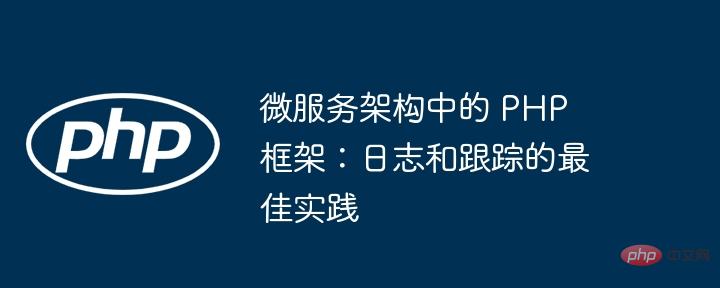
In a microservices architecture, logging and tracing best practices for PHP frameworks include: Logging: Use standardized formats, classify according to severity levels, record contextual information, and choose an appropriate PHP logging library. Tracing: Use distributed tracing solution, pass tracing ID, troubleshoot with tracing data, integrate PHP tracing library.

PHP Framework in Microservice Architecture: Best Practices for Logging and Tracing
In microservice architecture, logging and Tracing is critical for debugging, troubleshooting, and performance optimization. The following is a best practice guide for implementing logging and tracing using PHP frameworks:
Logging
Code Example:
// 通过 PSR-3 接口记录事件
use Psr\Log\LoggerInterface;
$logger = getLogger();
$logger->info('Successfully processed request');Tracking
Code example:
// 通过 Zipkin PHP 记录跟踪数据
use Zipkin\TracingFactory;
$factory = TracingFactory::create();
$sampler = new ProbabilityBasedSampler(0.1);
$tracer = $factory->createTracer('Service Name', $sampler);
$tracer->startRootSpan('user_registration');Practical case
Consider a simple e-commerce microservice architecture, which includes The following services:
Logging integration:
Tracking Integration:
The above is the detailed content of PHP Framework in Microservices Architecture: Best Practices for Logging and Tracing. For more information, please follow other related articles on the PHP Chinese website!
 How to open php file
How to open php file
 The difference between distributed and microservices
The difference between distributed and microservices
 How to remove the first few elements of an array in php
How to remove the first few elements of an array in php
 What to do if php deserialization fails
What to do if php deserialization fails
 How to connect php to mssql database
How to connect php to mssql database
 How to connect php to mssql database
How to connect php to mssql database
 How to upload html
How to upload html
 How to solve garbled characters in PHP
How to solve garbled characters in PHP